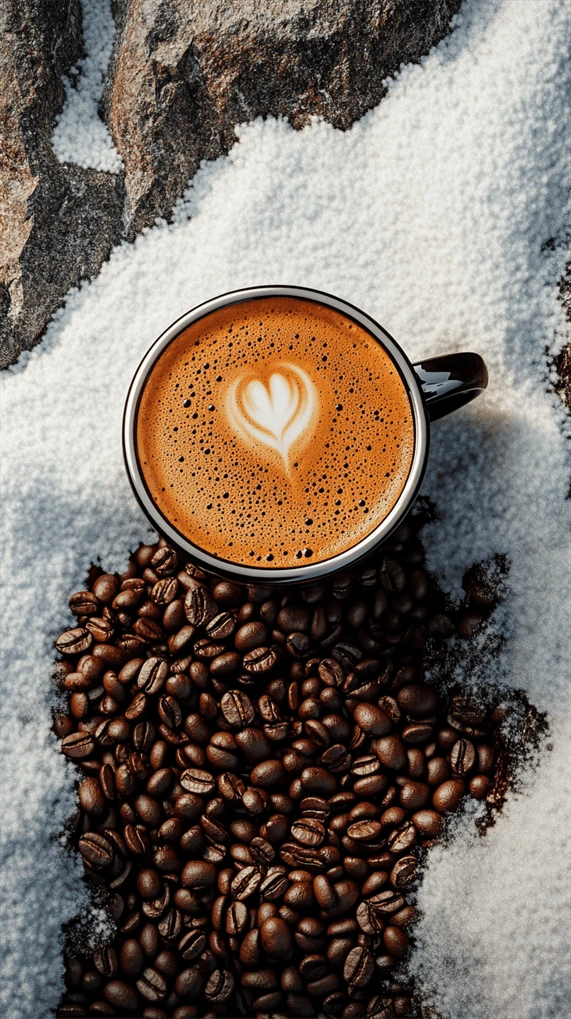Does Coffee Expire? Your Guide to Coffee Freshness, Storage, and Shelf Life
Table of Contents
Does Coffee Expire? Understanding Coffee Freshness and Shelf Life
Coffee is one of the most popular beverages in the world, consumed daily by millions of people to start their day, boost productivity, or simply enjoy the rich aroma and flavor. However, just like any food or drink, coffee does have a shelf life. But does coffee really expire? And if so, how can you ensure that you’re always enjoying the freshest, most flavorful cup?
In this article, we will dive deep into the freshness of coffee, how long it lasts, the signs that indicate it’s no longer good, and how to properly store your coffee to extend its shelf life.

The Shelf Life of Coffee: Freshness vs. Expiration
Coffee doesn’t “expire” in the traditional sense like milk or bread, but it does lose its freshness over time. The key to understanding coffee’s shelf life lies in distinguishing between freshness and expiration.
Freshness refers to the flavor and aroma of the coffee. Coffee begins to lose its peak freshness shortly after roasting. While it won’t turn rancid in the same way that dairy or meat would, the coffee’s quality declines as it sits in storage.
How Long Does Coffee Last?
- Ground Coffee: Once ground, coffee begins to lose its freshness more quickly. On average, ground coffee stays fresh for about 1-2 weeks after being opened. However, if stored properly, it can maintain its flavor for up to 3 weeks before it begins to taste stale or flat.
- Whole Bean Coffee: Whole beans have a longer shelf life than pre-ground coffee because the oils inside the beans are less exposed to air. If kept sealed in an airtight container, whole beans can last for 3-4 weeks at their best quality. They will continue to stay good for a few months but gradually lose flavor.
- Instant Coffee: Instant coffee, with its preservation techniques, can last for 2-20 years if unopened. Once opened, it will lose flavor over time but can last several months as long as it is stored in a cool, dry place.
Signs That Coffee Has Gone Bad
As with any product, coffee does have a point where it is no longer enjoyable to drink. It’s important to be able to identify when your coffee has passed its prime. Here are the main indicators:
| Sign | What it Means |
|---|---|
| Faded Aroma | The absence of a strong, rich aroma means the coffee has lost its flavor. |
| Flat Taste | If your coffee tastes bland or weak, it likely means it’s lost its freshness. |
| Sour or Stale Flavor | A bitter or unpleasant aftertaste can indicate that your coffee is old. |
| Color Change | Coffee that has gone stale may become a lighter or faded shade. |
| Mold or Discoloration | If you notice mold or unusual discoloration, discard the coffee immediately. |
How to Store Coffee for Maximum Freshness
Storing your coffee properly is essential to keeping it fresh for as long as possible. Here are some best practices for preserving the flavor and quality of your coffee:
- Use Airtight Containers: The most important factor in keeping your coffee fresh is limiting exposure to air. Coffee’s main enemy is oxygen, which accelerates the process of flavor degradation. A sealed, airtight container will keep the coffee from oxidizing and ensure that its flavor remains intact.
- Keep Coffee Cool and Dry: Heat and moisture also contribute to coffee losing its freshness. Store your coffee in a cool, dry place away from light. A kitchen pantry or cupboard, away from direct sunlight and the stove, is ideal.
- Avoid Storing in the Fridge or Freezer: While some people store their coffee in the fridge or freezer, this practice can actually cause more harm than good. Freezing and thawing coffee can lead to condensation, which affects flavor. Instead, buy coffee in small quantities and consume it within a few weeks to keep it fresh.
- Grind Fresh When Possible: If you’re using whole beans, grind them just before brewing to preserve their full flavor. Once ground, coffee starts to lose its aroma and taste quickly.
- Keep Coffee in the Original Packaging: If the coffee comes in a resealable bag with a one-way valve (a common feature for specialty coffees), keeping it in the original packaging can be a good idea. The valve allows carbon dioxide to escape while preventing oxygen from entering.
How to Tell If Coffee Is Still Good
If you’re unsure about whether your coffee has gone bad, there are a few easy tests you can do to determine its quality:
- Smell Test: Fresh coffee should have a rich, aromatic scent. If it smells stale, musty, or flat, it’s probably time to toss it.
- Taste Test: Brew a small amount and take a sip. If it tastes dull or flat, it’s likely past its peak.
- Examine visually for any signs of mold or any abnormal color changes.
- If you see mold, discard the coffee immediately.
How to Maximize the Freshness of Your Coffee
To get the most out of your coffee, here are a few extra tips:
- Buy Coffee in Smaller Quantities: Purchase coffee in smaller amounts so you can consume it before it loses its flavor. This is especially important for ground coffee.
- Use a Coffee Canister with a Freshness Valve: Consider investing in a coffee canister with a freshness valve. These canisters allow for the release of gases without letting air in, maintaining coffee’s flavor longer.
- Use Whole Beans and Grind as Needed: Whole beans retain their flavor much longer than pre-ground coffee. Grind only as much as you need, and store the rest in a sealed container.
- Don’t Overbrew: Brew only the amount of coffee you need at a time. Coffee that sits around after brewing loses its flavor and can even develop a bitter taste.
Conclusion: Coffee Doesn’t Expire, But It Does Deteriorate
While coffee doesn’t technically expire like perishable items, its flavor and freshness do degrade over time. By understanding the shelf life of different coffee types and using the right storage methods, you can ensure that every cup is as fresh and flavorful as the first. Whether you prefer whole beans or instant coffee, it’s essential to store your coffee in an airtight container, away from heat and moisture, to extend its life and preserve its best qualities.

